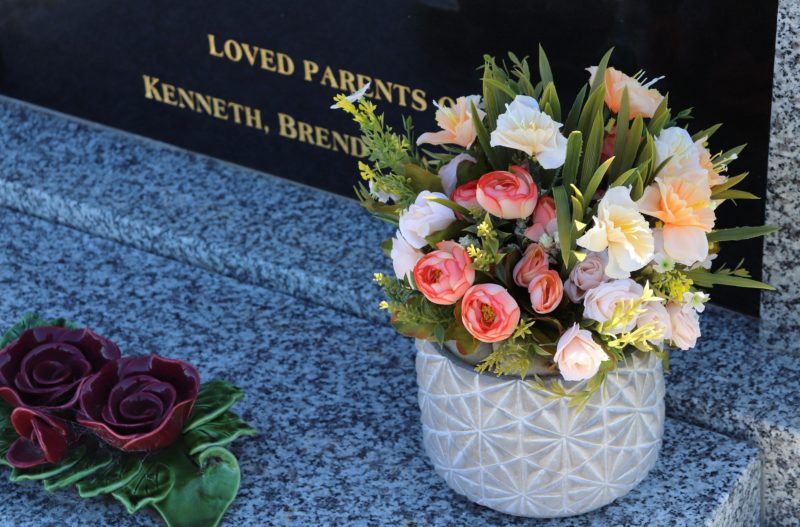
Memorial Service Checklist: 11 Things to Consider
Many people choose to hold memorial services to honor a loved. It’s an opportunity to mourn and say goodbye with the support of family and friends.
A memorial service offers flexibility when it comes to time and coordination. It can take place just days after the death or many weeks later. Especially now, during the COVID-19 pandemic, the number of people permitted at events is limited, so this gives you the option to plan something later when all of your loved one’s friends and family can attend. Planning a memorial service with careful thought and consideration can ensure it’s a unique, personalized tribute.
Here are 11 things to consider when planning a memorial:
- Select a date.
Choose a date that allows friends and family time to schedule their plans to attend. It may be practical to hold the service during the summer months when families can easily travel together or during extended holiday weeks.
- Choose a location.
Before deciding on a location, you’ll need to have an idea of the approximate number of people planning to attend. You can consider places that reflect the personality or interests of the deceased. If they loved the water, it can be held by a lake, or if they were a nature lover, you could hold it in a garden. Other ideas include a golf course, favorite restaurant, local park, or the beach. If you’re looking for something more traditional, plan to have it at a church, funeral home, hall, or home. The benefits to having the service at a funeral home is that you can take advantage of their sound system, podium, microphone, and other facility amenities.
- Decide on a theme.
If your loved one had a specific hobby, talent, or cultural identity that was important to them you could create a themed event to honor them. Decorations, food, readings, and music can be thoughtfully selected to highlight these aspects and provide a personalized and memorable service.
- Choose a host
If you’re not conducting the service, you’ll want to decide on the best person to ask. This could be a family member, friend, or religious leader. It’s a good idea to choose someone who feels comfortable with public speaking and a leadership role. Be sure to clarify all the details beforehand that may be required of them with this duty.
- Decide on speaker(s)
Often, one speaker can be chosen to lead a talk or eulogy about the life of the deceased. You can select others to read a favorite prayer, religious passage, or poem. Consider including an allotted time during the service to invite attendees to briefly share memories. This will add a personal touch to the service, bringing guests together in honoring your loved one.
- Create a Service Program
Creating a program listing the activities in order can be a simple guide for guests to understand the flow of the service. First, develop a timeline of each component such as songs, readings, speakers, and the eulogy. You’ll want to include who’s involved with each part and if you’re the host, announce each part of the service. The program should include the name, photo, and date of death of the deceased as well as the order of service events, copy of readings, and speaker names. You can also add in an appropriate quote, poem, or prayer.
- Collect photographs or memorabilia.
Creating a space at the service to display photos or favorite mementos that reflect the deceased’s personality, is a great way to bring people together and share memories. You could also create an online photo gallery, slideshow to present, or legacy video with help from family and friends.
- Decide on Music.
Music is a powerful way to express emotion and can be a key part of the healing process. Think about choosing songs from the deceased’s favorite band, singer, or type of music such as jazz. If you know family or friends who are musicians, request if they’d like to perform a special song at the service. You can also hire local musicians or simply play music on your own device and lead attendees in song.
- Decide on Flowers
Flowers bring a poignant touch to a memorial service. You can purchase flowers, select certain guests to bring some, or create bouquets from your own garden. Consider decorating with plants instead and offer friends and family to take one home. This is a special way to keep your loved one’s memory alive.
- Plan the Reception
Food plays a big part in any family gathering. A reception can be held at the service location or afterwards in someone’s home, park, or other place. Depending on the time of day or formality of the service, you can provide simple snacks and drinks or offer a full meal. If the latter, you’ll want to decide on whether it’s to be a potluck or catered. Be sure to include this information in the invite so guests know what is expected of them.
- Delegate Tasks
Planning a memorial service can be overwhelming with all the details to follow through on. Asking family members and friends to help plan can make the process go smoother and ease some of the stress on you. Think of assigning tasks such as creating the service program, shopping for food, or decorating the event space.
Planning a memorial tribute is time consuming but is also a labor of love and can be an important part of your healing process—and provides comfort to those left behind. We have helped thousands of families over the years to create special services for their loved ones. If you would like to speak with one of our funeral directors about the planning process, please call us at 215-927-5800.





